IOWAMEDICINE LEAN IN AND SPEAK UP
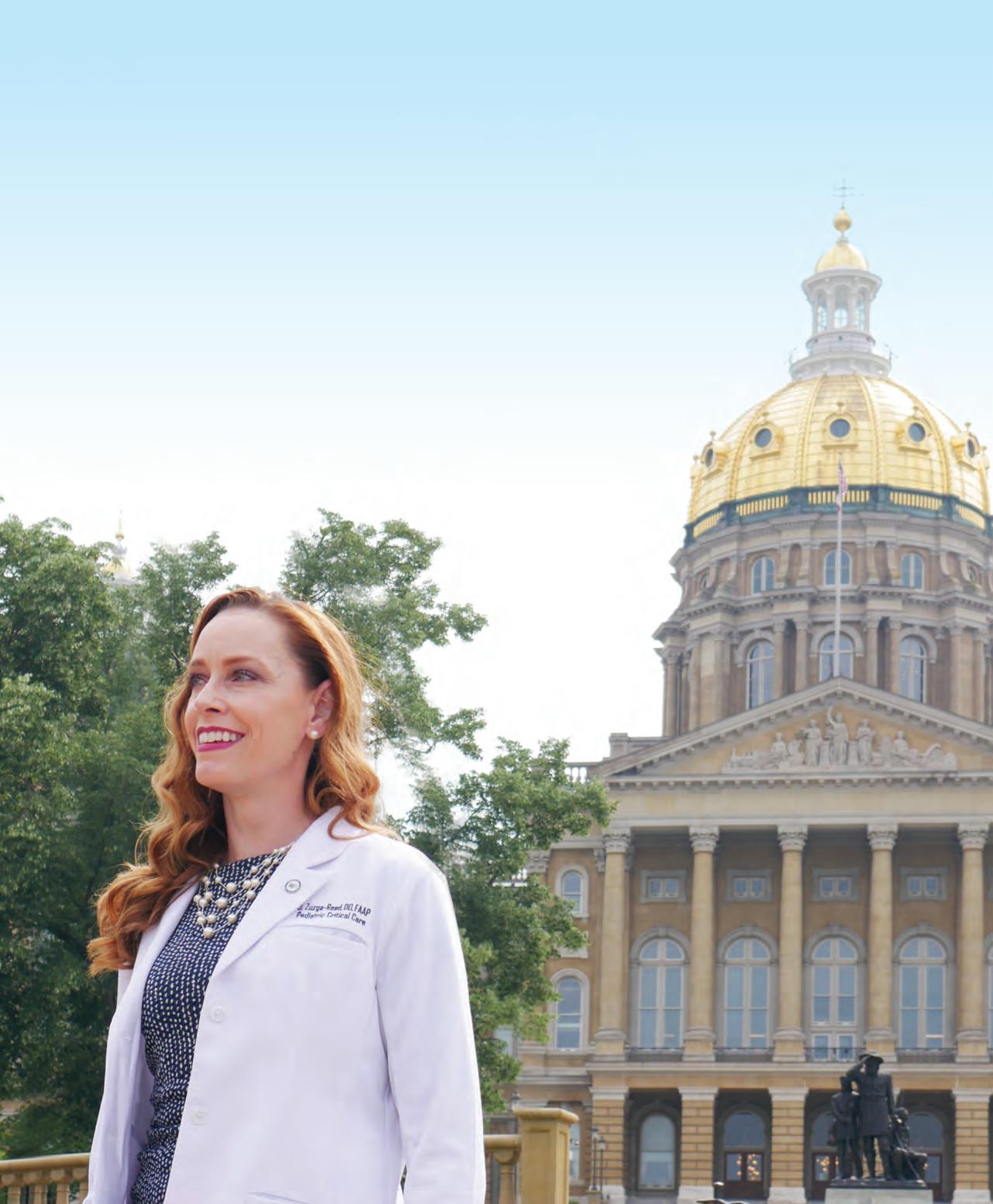
JOURNAL OF THE IOWA MEDICAL SOCIETY | APRIL - JUNE 2023 | QUARTER TWO PRESIDENT’S MESSAGE | OPIOID USE DISORDER | AMA REPORT
As your local health insurance partner, Wellmark Blue Cross and Blue Shield has been working side-by-side with the medical field for over 80 years. Our roots are as strong as our mutual desire to keep all Iowans healthy. We value working with physicians to promote preventive care and keeping patient costs down, while being committed to increasing access to quality health care for all. These are just some of the reasons why more providers choose to be part of the Wellmark network.
Wellmark.com

Wellmark Blue Cross and Blue Shield is an independent licensee of the Blue Cross and Blue Shield Association.
Sharing a common goal of keeping Iowans healthy.
Comprehensive pediatric transport system with air and ground ambulances stationed across eastern Iowa, and service throughout Iowa and beyond.
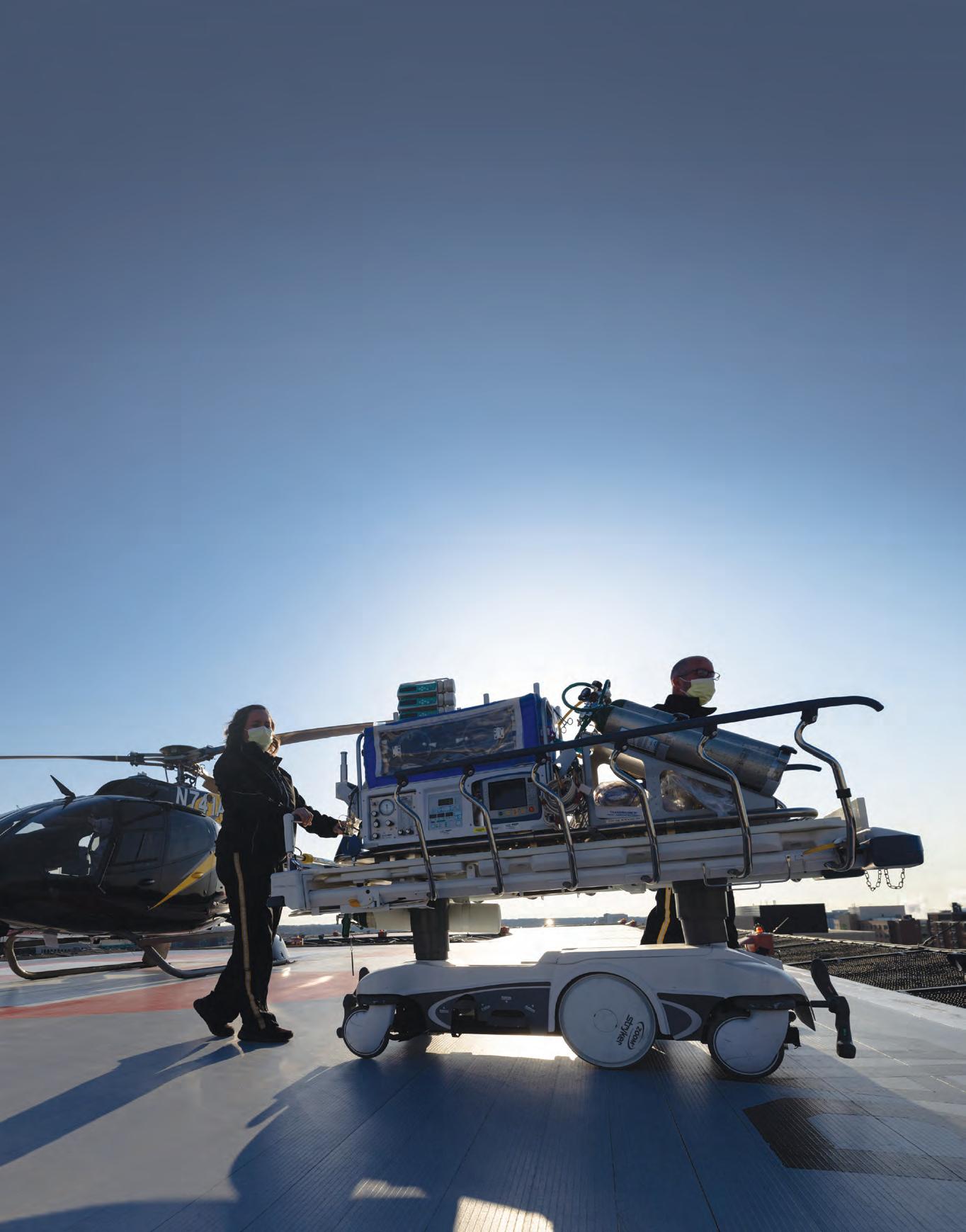
• Iowa’s only nationally ranked children’s hospital
• Level IV NICU with Iowa’s only specialists in neonatal hemodynamics, lung rehabilitation and neurocritical care programs
• Multidisciplinary pediatric ICU and CICU
• ECMO Gold Level Center of Excellence
• Level I pediatric trauma center
One
anytime access

uichildrens.org/transport
number for
to
and
and
and
1-855-984-4692 Changing Medicine. Changing Kids’ Lives.® 24/7 NEONATAL
• Level I pediatric surgery center TRANSPORT
attending NICU
PICU physicians
for consult
ground/air transfers
AND PEDIATRIC
Q2 | April - June 2023
Contact Us: Iowa Medicine
515 E. Locust St., Ste. 400 Des Moines, IA 50309
Phone: 515.223.1401 or 800.747.3070
IMS President: Jessica Zuzga-Reed, DO
IMS CEO : Steven W. Churchill
Executive Editor: Sara Opie
Managing Editor: Sydney Maras
To Advertise:
To Advertise: Contact Heather Lee Phone: 515421-4776 Email: hlee@iowamedical.org
Subscriptions:
Annual Subscription $45
Iowa Medicine, Journal of the Iowa Medical Society (ISSN 0746-8709), is published quarterly by the Iowa Medical Society, 515 E. Locust St., Ste. 400, Des Moines, IA 50309.
Periodicals postage paid at Des Moines, Iowa and at additional mailing offices.
Postmaster: Send address changes to Iowa Medicine, 515 E. Locust St., Ste. 400, Des Moines, IA 50309.
Editorial Content:
The Society is unable to assume responsibility for the accuracy of submitted material. Editorial inquiries should be directed to the Editor, Iowa Medicine, 515 E. Locust St., Ste. 400, Des Moines, IA 50309.
Get Connected:
Stay up-to-date with IMS on Facebook: facebook.com/IowaMedical
Copyright 2023 Iowa Medical Society: Opinions expressed by authors do not necessarily represent the official policy of the Iowa Medical Society. Iowa Medicine does not assume responsibility for those opinions. Products and services advertised in Iowa Medicine are neither endorsed nor guaranteed by the Iowa Medical Society unless specifically noted.
IMS Core Purpose:
To assure the highest quality health care in Iowa through our role as physician and patient advocate.
2 | Iowa Medicine Q2 2023
I OW A MED IC AL SOCI ET Y
ISSUE: CONTENTS From the CEO . . . . . . . . . . . . . . . . . . . . . . . . . . . 4 President’s Column . . . . . . . . . . . . . . . . . . . . . . . . 6 Legislative Scorecard . . . . . . . . . . . . . . . . . . . . . . 10 Policy Forum Results . . . . . . . . . . . . . . . . . . . . . . . 11 New IMS Leadership . . . . . . . . . . . . . . . . . . . . . . .12 IMS 2023 Awards 14 Committee Roundup . . . . . . . . . . . . . . . . . . . . . . 16 Financial Health: Enhancing Financial Security . . . . . 20 AMA Report . . . . . . . . . . . . . . . . . . . . . . . . . . . . 22 IMS In Depth: Opioid Use Disorder . . . . . . . . . . . . . 24 UI and DMU Commencement . . . . . . . . . . . . . . . . 26 Profiles in Medicine . . . . . . . . . . . . . . . . . . . . . . . 28 Dean’s Article . . . . . . . . . . . . . . . . . . . . . . . . . . . 30 I am an IMS Member . . . . . . . . . . . . . . . . . . . . . . 32 Doc 2 Doc: An IMS Pod Talk Join host and IMS Past President Brian Privett, MD, for a monthly discussion with subject matter experts surrounding current events that impact medicine in our state. New episodes released on the first Wednesday of every month! listen & learn more here: doc2doc.buzzsprout.com
IN THIS
needs of hundreds of Midwest physicians and their families. We provide experienced, independent, research-based financial guidance. We accept no commissions. And we are always focused solely on our clients’ best interests.

3 Iowa Medicine Q2 2023 | 844-437-1103 | fostergrp.com/IMS Call today! And discover the value of having your financial life Truly Cared For®. AM I ON TRACK FOR RETIREMENT? HOW CAN I OPTIMIZE INCOME AND PLAN FOR TAXES? PLEASE SEE IMPORTANT DISCLOSURE INFORMATION at www.fostergrp.com/disclosures. A copy of our written disclosure Brochure as set forth on Part 2A of Form ADV is available at www.fostergrp.com. Foster Group is an approved White Coat Investor advisor. WE’LL ANSWER YOUR QUESTIONS WITHOUT COST OR OBLIGATION.
the
PLAN | INVEST | PROTECT | IMPACT
For more than 30 years, Foster Group has served
financial
LEADING CHANGE
STEVE CHURCHILL, MNA CEO, Iowa Medical Society
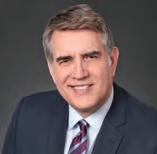
Last month, I had the opportunity to join IMS President Dr. Jessica Zuzga-Reed representing the Iowa Medical Society (IMS) at the graduation ceremonies for medical students at the University of Iowa and Des Moines University. It was inspirational and fun to be among the family and friends of these students as they donned their robes and crossed the stage after years of dedication and hard work.
As these bright new physicians look to the future, it is time too for IMS to celebrate our accomplishments, such as Tort Reform, to examine our challenges and to lead the change we envision for our members.
Next month, the IMS Board of Directors will gather in Des Moines to refresh the strategic plan to set the course the next three years.
The landscape in Iowa has changed a great deal since the plan launched in 2021. As IMS leaders came together to chart out the future in July of 2020, Iowa was in the midst of the COVID-19 pandemic that ravaged the state and our nation. Our physician members were working around the clock to meet the needs of the patients they serve,
and a great deal of anxiety and uncertainty was in the air. Medical students were also disrupted, as much of their work in the classroom went virtual, along with the workplace, for many Iowans. It was a time of trepidation for physicians and the patients they serve.
Now that we have emerged from the pandemic, we look to the future to meet the new challenges of the medical community and patients we serve.
To help inform our strategic plan, we launched a comprehensive membership survey to gather input from our physician members and stakeholders. In addition to analyzing survey results, we conducted deep-dive interviews with key stakeholders to help ensure we understand the needs, priorities, and concerns of our members.
We will examine our mission and core purpose, that defines who we are and why we exist, and define our vision that articulates our longterm goals and aspirations for the future. We will outline measurable goals and objectives to help guide our future.
IMS is a member driven organization, and as such, we are grateful to those physicians, residents, and medical students who made their voices heard by participating in the survey.
In her inaugural address Dr. Zuzga-Reed spoke of the need to be adaptable to change. And certainly, through the COVID pandemic and the evolution of the practice of medicine, physicians have demonstrated their ability to adapt to an ever-changing environment.
As your professional society, IMS must take the time to reflect on our past as we come together to outline our priorities and lead the change for a future we envision — to ensure we are delivering value to you, our members. And fulfilling our core purpose and mission to assure the highest quality health care in Iowa through our role as an advocate for physicians and patients in Iowa.
4 | Iowa Medicine Q2 2023 FROM THE CEO
As these bright new physicians look to the future, it is time too for IMS to celebrate our accomplishments, such as Tort Reform, to examine our challenges and to lead the change we envision for our members.




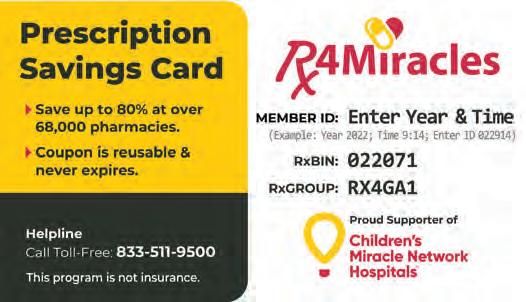

5 Iowa Medicine Q2 2023 | Proud Supporter of: This drug savings program grants funds to CMN Hospitals to help children within their local communities. LEARN MORE AT RX4MIRACLES.ORG and get your Free Prescription Savings Coupon Card Program Highlights Save up to 80% on prescriptions | Free pharmacy coupon card | Discounts on brand & generic drugs Accepted at over 68,000 pharmacies nationwide | No restrictions & HIPAA compliant This Program is NOT Insurance. Save up to 80% on prescriptions with Rx4Miracles Card. Enter Year & Time (Example: Year 2023 & Time 9:14 = ID# 2023914) 022071 4KIDS RxBIN: RxGROUP: MEMBER ID: Compliments of:
Below is an abbreviated transcript of the Inaugural address IMS President Jessica Zuzga-Reed, DO, delivered at the 2023 President’s Reception. The full speech may be viewed or read on the IMS website.
So much of who we are comes from where we have been. Our experiences mold us into the people we are today. I would not be the person I am today and may not have chosen the paths I’ve taken without the people and places I have been blessed to encounter. Many of the people here in this room tonight have played a role in my standing before you now as the 174th President of Iowa Medical Society. This is an honor and privilege I do not take lightly.
Much of who I am was shaped by two people who are not here with us tonight. I am a thirdgeneration osteopathic physician. My grandfather was the son of Polish immigrants born in New York. He graduated medical school in Chicago during World War II, finished training and started his practice in rural Michigan recruited by a local factory. He had completed a surgical residency but had limitations in his scope of practice as a DO for a number of years. So much was different about the practice of medicine during those times beyond the difference in understanding of disease and treatment options. The cost of medical school tuition was a mere $500 per year. Less than 10% of
LEAN IN AND SPEAK UP
JESSICA ZUZGA-REED, DO IMS President
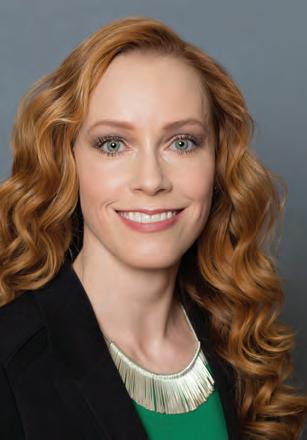
Americans had private health insurance as we know it in the early 1940s. Many of my grandfather’s patients paid for their care by bartering.
His practice encompassed what we now think of as full scope family medicine with surgical privileges. His profession defined him. Everyone called him “Doc,” including my grandmother. To me, he was Grandpa Doc. His Norman Rockwell existence was most vividly portrayed at his retirement party. After nearly 50 years in practice, people traveled over 100 miles to visit him, thank him and share stories of the generations of their family touched by him. I was in middle school at the time deep in the self-centered throws of adolescence. And even I was awestruck by the impact of my grandfather’s life of service— his calling.
My father’s education journey brought him to my grandfather’s alma mater for medical school in the late 1960s. He was drawn to rheumatology inspired by a dear cousin who had suffered from rheumatic disease during an era where most diseases were yet to be fully delineated let alone successfully treated. His clinical practice spanned from urban and suburban Chicago area to rural outreach clinics. His passion was clinical and pharmaceutical research, and teaching in all capacities. I have many vivid
memories from my childhood that revolve around his career— rounding with him at hospitals on the weekends, the doctors lounges where I could always find the best treats, sometimes being pulled into the patient room with him to meet someone who has been hearing all about me for years, and many vacations centered around conferences where he was an invited speaker. As a child, I was given a glimpse of the sacrifices that a career in medicine meant. But I was also aware of the gratitude his patients, nurses, and trainees had for his compassion, time and enthusiasm for learning and teaching.
It is unclear to me exactly when I decided I wanted to follow in these giant footsteps. I suppose like many who enter “the generational family business” there was a part of me that didn’t really ever think twice. There were moments of guidance from both men on things to consider. There was not one ounce of pressure. If anything, there were conversations about medicine changing. During the course of their careers, the science of medicine advanced immensely and the practice of medicine changed significantly. I didn’t fully understand their warnings at the time.
Once I had become steadfast in my desire to be a physician, it was clear to me that my motivation was to help others. How I would accomplish this was much less clear.
6 | Iowa Medicine Q2 2023 PRESIDENT’S COLUMN
I too followed my family footsteps to the same medical school in the late 1990s where I quickly became involved with student government as class president. This opened doors to a path toward organized medicine through the American Osteopathic Association - the AOA. I attended annual student lobby days in DC each year. Increasing roles in student leadership ultimately lead to being a voting student member of the AOA House of Delegates. Exposure to organized medicine and healthcare policy so early in my career was an absolute blessing; one I had not intentionally sought out but more or less stumbled upon. Having a voice on the floor during policy deliberation, and involvement on committees was truly eye opening. I learned that our oath to protect our patients did not start and stop at the bedside. This was not a lesson taught to my classmates. It was not in our curriculum. My classmates and I did not have the widespread use of the internet to gain information let alone algorithm-based social media to bring social & economic policies and constructs to our attention with little effort. Organized medicine introduced me to other student and physician leaders whose professional successes and challenges helped shape my views on changes needed in healthcare.
In hindsight, my love of pediatrics and critical care medicine seems like it was predetermined, but pediatrics was not even on my radar entering clinical rotations. It was, however, my first rotation. And it quickly became the standard to which I subconsciously compared every other field. Having had the fortune of my first impression of pediatrics being at a high-acuity community children’s hospital opened my eyes to the complexities of care for our most vulnerable population. I later returned there for residency. The place where I fell in love with the care of children and found my calling was only two miles from my high school. There were stretches of my training where I lived at
home with my parents. Dinnertime discussions with Dad during those years were on a new level. I had rotated in his hospital throughout medical school — the same hospital where I rounded with him many years before. The wards, the clinics, even the doctor’s lounge, had new meaning but still felt like home. One of my favorite experiences was a two-week elective on his service. Like many young adults, I took for granted that unique opportunity to fully witness my father in his element. These are now some of my most cherished professional and personal memories. Here’s why: Around the time I decided to apply for pediatric critical care fellowship, my dad was diagnosed with pancreatic cancer. His 14-month long battle taught me countless lessons personally and professionally. I was blessed to be training so close to home allowing me the opportunity of time with him. His sense of responsibility for his patients and trainees were unwavering during that time. That same hospital where he dedicated his career and where I grew up is where his battle with cancer ended. His death at the beginning of my fellowship along with the birth of both of my children during fellowship solidified the coming years’ focus on family and career. My graduation occurred during a down-turned economy causing the majority of the hospitals to which I had initially applied to pause hiring. Pediatric Critical Care had been a field of significant growth throughout the country during my training as more hospitals were opening PICUs placing supply and demand in my favor. But this promise was not my experience. I had received my bachelors from University of Iowa and gladly considered the opportunity to return to Iowa. Our family of four moved to Des Moines to join what is now known as MercyOne Children’s
Hospital Pediatric Intensive Care Unit. We quickly fell in love with all the charms of life in Iowa. Almost 14 years later, we are immensely grateful for the happenstances that led us here to a community that has helped us raise two truly awesome teenagers.
As the strain of the early years of parenthood and my career subsided, opportunities to become more engaged within my hospital and IMS surfaced. It has been my experience that saying yes to opportunities that were not necessarily on my radar have been some of the most fulfilling. My subspecialty historically has one of the highest burnout rates. To borrow from Sheryl Sandberg, leaning in and broadening my horizons past the number of patients on my census has paid off many times over for me.
I joined the board roughly a year before the pandemic was declared. The impacts of the pandemic on healthcare are ones that we will be feeling for a long time. Iowa has been no stranger to the discussion of workforce issues and access to care long before COVID-19 became a household word. However, the pandemic has taken our workforce issues to a new

PRESIDENT’S COLUMN
level. The economic impacts we are facing are unprecedented. Although, the pandemic was officially declared over recently, those of us in healthcare will be tending to our wounds for years to come. And I believe the wounds in Iowa to be deeper still as one of the lowest- reimbursed states in the country. With reimbursement rates essentially unchanged over the last decade in stark contrast to inflation in supply chain mixed with cost of contract labor to staff our practices, the number of problems to be solved are piling up. Meanwhile, we are still desperately trying to provide the best care for our patients and communities. Do more with less. We have seen closures of hospitals and birthing centers in rural areas that arguably need more, not less, help. In fact, there are few hospitals in our state that are not financially struggling to make ends meet. This is not sustainable.
to improve access for Iowa’s sickest children. All three of our hospitals received children from surrounding states where they had run out of PICU beds due to closures. Our collaboration was grassroots and unprecedented, but born out of necessity. Although there is still much work to be done for our state to improve ease of access to higher level of care centers for patients of all ages, the groundwork has been laid. That alone is progress. It is only human during times of stress to become focused on self-preservation, and those who were in the midst of their training years during the pandemic were forced to do just that. If you don’t have the pleasure to work with the phenomenal medical students, residents and fellows who are training in Iowa, or have had a new grad join your practice in the last few years, you may likely not have reflected on how this has impacted
The challenges faced over the last three years and over the coming years, in many ways, have amplified the problems that already existed in our healthcare systems. We must not overlook or forget some of the extreme things we encountered. Perhaps, you closed your practice and paid employees to remain at home all while trying to figure out how to pay the rent for your space. Perhaps you were the critical access physician who held up the morale of your emergency room while attempting to care for patients much higher in acuity than what you are designed to handle. Or you were the hospitalist, intensivist or infectious disease specialist at a tertiary/ quaternary center who is trained to always take the patient and be of help but cannot as you drown in the weight of dying patients at a volume you’ve never imagined. The moral injuries we have sustained cannot be ignored. And yet, we are here persevering for our patients when our own reserves are low.
The closures of hospital-based services for children over the last two years impacted families around the country. Many of my efforts during the pandemic were focused on pediatric access to care in Iowa. Surge planning changed over time from our perspective. Pediatric wards and ICUs were frequently utilized for adult care due to overwhelming need. As the economic weight became heavier, many places around the US chose to permanently convert pediatric areas to adult services due to low volumes and significant disparity in reimbursement. Over 25% of the PICUs in the country closed months before the respiratory illness surge hit last fall. I’m incredibly proud to have worked alongside my fellow Iowa children’s hospital leaders daily over the last two plus years
them. Practicing physicians, I challenge each you to consider how different your knowledge and experiences would have been in your given fields if your clinical training was limited in the ways our current trainees experienced. At minimum, the learning curve would be steeper and perhaps your choice of field would have been completely different. Please remember this as these fine trainees recover from these extreme challenges. Their experiences are like none before. To our next generation of physicians, I want to commend each of you for taking on medicine as a career as I know how difficult the journey was for me. Mentorship is the hallmark of our profession and I hope we, as already-practicing physicians, rise to the unique challenges to meet your needs.
For me, self-preservation during this time caused me to question my purpose. What on Earth was I thinking going into medicine?!? I was at a personal low point when I was invited to Carver College of Medicine’s convocation ceremony last year on behalf of IMS to be one of a few physicians on stage. Almost exactly 25 years prior, I had been performing on the stage at the old Hancher Auditorium as a dance major. Sitting on the stage of the reborn Hancher, I found myself reflecting back on that young lady and her journey. Would she make different choices if she knew what I know now? That all changed the moment they began calling individual students’ names to be hooded. I was one of the first people to see the glimmer in the eyes and the overwhelming sense of accomplishment and hope on the faces of each student as they heard their names preceded by the word “doctor” for the first time. The ‘why’ for which I did this, the ‘why’ I’m still doing this became much more
8 | Iowa Medicine Q2 2023 PRESIDENT’S COLUMN
We are an ever-evolving profession and it is imperative for us each to lean in and speak up when possible for the sake of our patients.
clear. The words of the oath taken had renewed meaning on a day that was almost exactly 20 years from the date I took it.
There is hope that the trials and tribulations we are facing will be behind us one day. Medicine and healthcare changed a lot over the last few years. As a Greek philosopher once said, “change is the only constant.” Over the lifespan of the three generations of doctors in my family, the science and art of medicine, delivery of medicine, oversight of medicine, and cost of care has changed immensely. Changes in workforce and demands of the evolving populations are
not a new problem. The scope of practice changes for DO’s was born out of necessity during wartime when MD’s were sent overseas. As I stand here now, I feel it’s especially important to remember that it took physician advocacy to achieve that. Our discussions of workforce shortages and potential solutions including scope of practice today are different, but these discussions need our voices to assure that any changes made are executed well with focus on quality patient care. “It is not the strongest of the species that survive, nor the most intelligent, but the one most responsive to change.” Charles Darwin said that and I believe it to be true.
As I move into this new role, I want to assure you that IMS has, and will, continue to respond to changes needed to improve patient care, your practice of medicine, and uphold the sanctity of the patientphysician relationship. We are an ever-evolving profession and it is imperative for us each to lean in and speak up when possible for the sake of our patients. Medicine is deeply personal to each of us. I hope that you find reflecting on and sharing your personal stories with colleagues, legislators, and others will help renew for you why you took the leap and put in all the grueling years of work to do what we do.

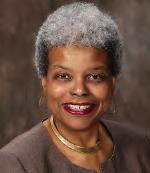
FRIDAY
SEPTEMBER 15 &
SATURDAY
SEPTEMBER 16, 2023
DES MOINES, IOWA
Women physicians are so much more than just doctors. Join the Iowa Medical Society for the 2023 Women in Medicine Conference to gain valuable insights on how to achieve balance in your personal and professional life.
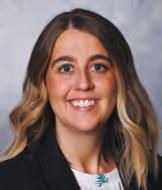
The event will begin with a social hour on Friday evening, followed by a great lineup of women physician speakers and panelists on Saturday. Stay tuned for a full agenda to be posted in the coming weeks.
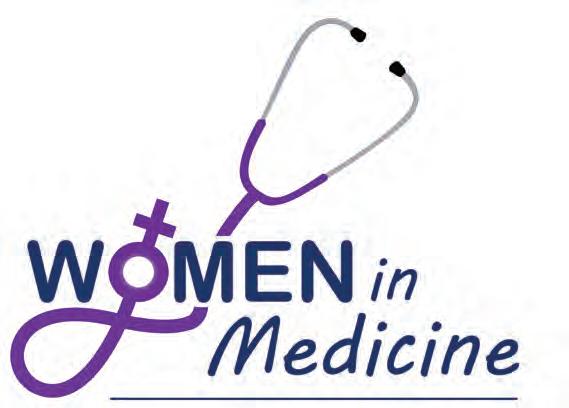
9 Iowa Medicine Q2 2023 | PRESIDENT’S COLUMN
SAVE THE DATE
Deborah Turner, MD, JD Speaker Ashleigh Burt, MD Panelist
Cindy Hanawalt, MD, PhD Speaker
Rural access to care dominates healthcare agenda
PHIL JENEARY
KEVIN CUNNINGHAM, MD, FACP Chief Medical Officer The Iowa Clinic
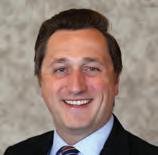
The 2023 Iowa legislative session was one for the history books. Decades of grassroots action and tireless advocacy finally culminated in one of the greatest legislative successes to date - the passage of medical malpractice tort reform! Concerns related to rural access to care were prominent and weighed heavy in all areas where healthcare was discussed. While the rural focus was conducive to several IMS priorities, including tort reform and physician workforce endeavors, it presented some challenges in other areas, such as scope of practice, where legislators overwhelming desire to expand access greatly influenced advocacy efforts.
“For more than two decades our attention has been on tort reform, you cannot beat that headline for the session – what a win!” said Kevin Cunningham, MD, Medical Director, Iowa Clinic Internal Medicine and chair of IMS’s Committee on Legislation. “Getting that over the goal line overshadows anything good or bad that went on at the Capitol.”
Issue
Enact Tort Reform
Expand Rural Physician Workforce
Description
IMS helped lead the way on enacting medical tort reform. After years and decades of advocating, the legislative passed, and Gov. Kim Reynolds signed into law hard caps on medical liability claims. The bill caps liability claims for hospitals at $2M and doctors at $1M. The bill creates a medical review taskforce to look at ways to improve healthcare.
IMS helped secure several funding items to expand physician workforce this session. Here are a few highlights:
• $2.5M for the Rural Physician Loan Repayment Program including productive conversations about implementing additional funding in the future to expand rural physician workforce
• $13.5M in additional funding to the Iowa Health Careers
Registered Apprenticeship Grant Program
• $560,000 to fund four obstetric fellowships which will support maternal health in rural and underserved areas in Iowa
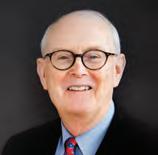
• Expand the state-funded psychiatry program to include fellowship positions at UIHC. The state will appropriate $100,000 per residency position and $150,000 for each fellowship position
Status
IMS Win
Improvements Made
Protect Scope of Practice
IMS spent most of the legislative session post-Tort Reform, battling expansive scope of practice bills. Lessening regulation and standards for medical care in hopes of expanding healthcare access was goal of the legislature this session. Given the immense uphill battle, IMS led the way in successfully amending the physician assistant bill requiring a period of physician supervision for independent practice and requiring rules to determine collaboration after that period. IMS also added guardrails and patient safety measures to the licensing of direct entry lay midwives.
IMS also led efforts to halt adding occupational therapists as mental health professionals and allowing podiatrists to order and administer vaccines and immunizations.
Mixed Results
10 | Iowa Medicine Q2 2023 HISTORIC
SESSION
LEGISLATIVE SCORECARD
IMS Director of Government Relations
Reduce Administrative Burden
Building on previous years’ successes, IMS advocated for evolving prior authorization. While the legislation that was introduced did not pass, IMS will be meeting with legislators during the interim as well as working directly with the payer community.
Support
Vaccine Access
IMS spent little time fighting anti-vaccine legislation as there were minimal bills and most were not seriously considered. Most legislators’ focus was not on vaccine issues but expanding healthcare access. IMS will continue to monitor anti-vaccine legislation, but it appears the legislature has moved on from this from issue.
Strengthen Medicaid
The Department of Health and Human Services (DHHS) produced the first real rate review process for Medicaid reimbursement rates in decades. IMS supported legislation that provided a 2.5% tax on MCO’s and alignment with the federal government to gain federal dollars which could be considered to increase Medicaid reimbursement rates. Through the MCO tax, DHHS estimates that the federal match will provide $155.8M in additional dollars in FY25 and an additional year amount of $104M. IMS will continue to advocate for use of these dollars to increase reimbursement rates.
Work Continues
23-1 POLICY FORUM RESULTS
The Policy Forum is the process by which IMS establishes and amends official organizational policy. Policy Forums are held twice annually in the spring and fall, with additional policy meetings in the winter as needed Twenty physicians on IMS’s Board of Directors comprise the forum’s decision makers - led by Policy Forum Speaker, Noreen O’Shea, DO.
This year we had great interest in policy with 12 submissions. A full status report of results can be found on the IMS website. Below are the most relevant results:
Policy Forum 23-1 Results:
This year we had great interest in policy with 12 submissions. A full state report of results can be found on the IMS website. Below are a selection of priority issue results:
Diversity Equity Inclusion (DEI) in Medical Education
• PRS 23-1-01: Support for DEI in Medical Education
– Refer to DEI/Law & Ethics committees; present recommendations at September Policy Forum
• PRS 23-1-02: End of DEI Curriculum in Medical School
– Not adopted
Medical Malpractice, Certificate of Need, and Non-Compete Agreements
• PRS 23-1-05: Medical Malpractice Attorney Fee Cap, Certificate of Need, Physician

Noncompete Agreements
A mendment from author to remove medical malpractice attorney fee cap accepted
– Certificate of Need referred to specially convened task force
– Physician Noncompete agreements referred to specially convened task force; present recommendations at September Policy Forum




Gender-Affirming Care
• PRS 23-1-10: Support Transgender Care
– Refer to Law & Ethics Committee for detailed evaluations and recommendations to be presented at September Policy Forum meeting
Learn more about the Policy Forum process and find the 2023 IMS Policy Compendium on the IMS website here: www.iowamedical.org/Policy-Forum
11 Iowa Medicine Q2 2023 |
POLICY FORUM RESULTS
Issue Description Status
Work Continues
IMS Win
–
Call for Action Policy Request Statement Testimony Forum IMS Policy Forum PostPolicy Forum
IMS BOARD OF DIRECTORS
Executive Committee
President
Jessica Zuzga-Reed, DO
Pediatric Intensivist
MercyOne Children’s Hospital
Board of Directors
Emily Boevers, MD
OB/GYN
Waverly Health Center
President-Elect
Christina Taylor, MD
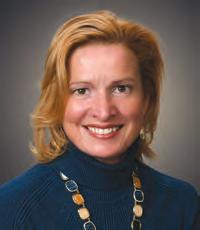
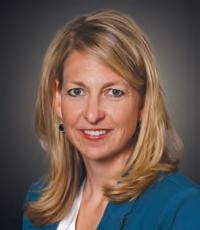
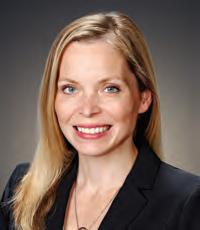
Internal Medicine
Clover Health Value-Based Care
Past-President
Scott Truhlar, MD, FACR
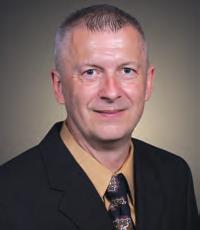
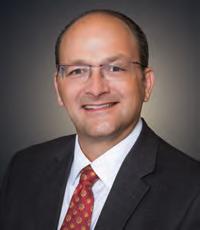
Radiology
Radiologic Medical Services
Board Chair
Alison Lynch, MD Psychiatry
UIHC
Secretary-Treasurer
Lillian Erdahl, MD
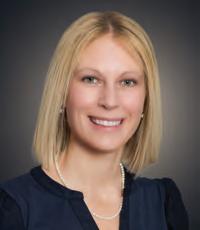
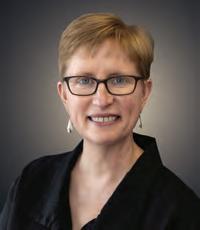
Surgical Oncology
UIHC/Iowa City VA Medical Center
Jason Dierking, MD, FACS
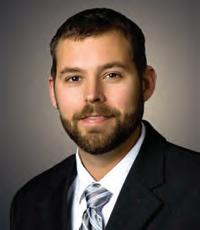
General Surgery
Buena Vista Regional Medical Center
Jennifer Groos, MD, FAAP

Pediatrics
Primary Health Care
Lindsey Jenkins, MD

OB/GYN
OB/GYN Associates of Des Moines PLC
Lenard Kerr, DO
Emergency Medicine
Acute Care Inc.
12 | Iowa Medicine Q2 2023 NEW IMS LEADERSHIP
2023-2024
Shannon Leveridge, MD
OB/GYN
Edgerton Women’s Health Center
Kaaren Olesen, DO
OB/GYN Broadlawns Medical Center
Rachel Preisser, MD
Radiology & Diagnostic
MercyOne
Waterloo Medical Center
Noreen O’Shea, DO, FAAFP
Policy Forum Speaker
Behavioral Medicine
Des Moines University
Mara Syring, DO
Pediatric Hospitalist
McFarland Clinic
Peter Tonui, MD General Surgery
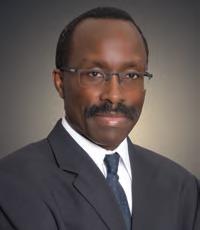
Iowa Clinic
Victoria Sharp, MD, MBA

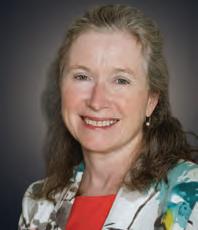

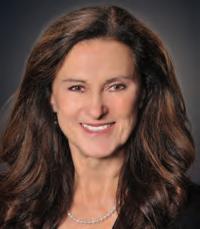


AMA Delegation Chair
Family Medicine
VA Healthcare System
Emily Trudeau, MD
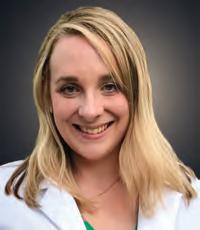

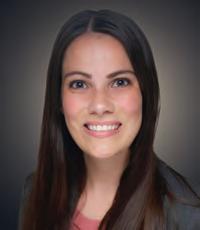
Resident Director
University of Iowa
Mikayla Brockmeyer
OMS-III
Student Director
Des Moines University
Sarah Costello, M3
Student Director
University of Iowa
13 Iowa Medicine Q2 2023 |
NEW
LEADERSHIP
IMS
IMS PRESENTS 2023 AWARDS
Each year, the Iowa Medical Society recognizes the outstanding contributions of physicians, laypersons, and organizations to the practice of medicine by presenting four special awards. The following were presented at the 2023 IMS President’s Inaugural Reception in Des Moines on April 21.
IMS/COPIC PHYSICIAN HUMANITARIAN AWARD
Given each year to a physician in Iowa for volunteer medical services and contributions to their community through principles focused on human dignity, social justice, and compassion. The recipient of this award designates a $10,000 donation from COPIC to be provided to a health care related 501(c)(3) organization within Iowa.
Jay Brown, MD
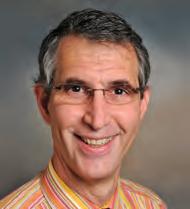
Dr. Brown was the founder of the Ames Free Medical Clinic and has volunteered across the community including as a mentor and board member at Youth & Shelter Services (YSS). Dr. Brown has designated YSS as the recipients of the award’s $10,000 donation, provided by COPIC.

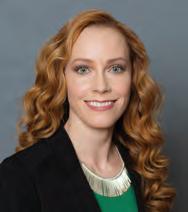
JOHN F. SANFORD AWARD
Given to honor a layperson who has made outstanding contributions to the public health field or in the field of health care.
Jess Klembara
Jess Klembara founded the nonprofit organization Fighting Through Kinship to raise money and awareness for breast cancer patients, thrivers, survivors, and previvors in central Iowa. The Fighting Through Kinship 5K fundraising race is the largest breast cancer walk/run in Iowa. Jess has made a significant impact on access, awareness, and education in the sphere of hereditary cancer screening and treatment both in Iowa and beyond.
MERIT AWARD
Given to a physician who has made outstanding contributions to the medical profession and Iowa Medical Society.
Jessica Zuzga-Reed, DO
Dr. Zuzga-Reed serves on the Iowa Pediatric Healthcare Collaborative as a MercyOne representative with several other physicians as they work to address healthcare needs for children across the state through legislative outreach and advocacy. She has used her role with IMS and Iowa Pediatric Healthcare Collaborative to serve as a voice for physicians and patients across Iowa.
WASHINGTON FREEMAN PECK AWARD
Given to a lay organization in honor of its outstanding contributions to public health.
CHP Community
CHP Community, a Des Moines-based nonprofit organization, manages the Iowa Community HUB make up of a network of partners coming together to support evidence-based health promotion programs and services in Iowa.

The Iowa Community HUB, a product of CHP Community, provides healthcare partners a system to extend beyond the walls of a clinic for community integration, making communityclinic linkages integral to promoting health and reducing disease and disability.

14 | Iowa Medicine Q2 2023 IMS AWARDS
2023 PRESIDENTIAL CITATIONS
The IMS Presidential Citation Award represents our organization’s highest distinction, and is presented only at the discretion of the President of the Iowa Medical Society.
Penumetsa Raju, MD
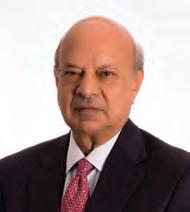
It is our honor to recognize Dr. Raju’s commitment and tireless work supporting IMS and its core purpose. We are proud to recognize his service to Iowans by practicing medicine in Iowa for more than 50 years. Professional, dedicated, and compassionate are a few of the words used to describe Dr. Raju. He is great with patients, peers, associates and always willing to share his knowledge with staff and nurses.
Michael Kitchell, MD
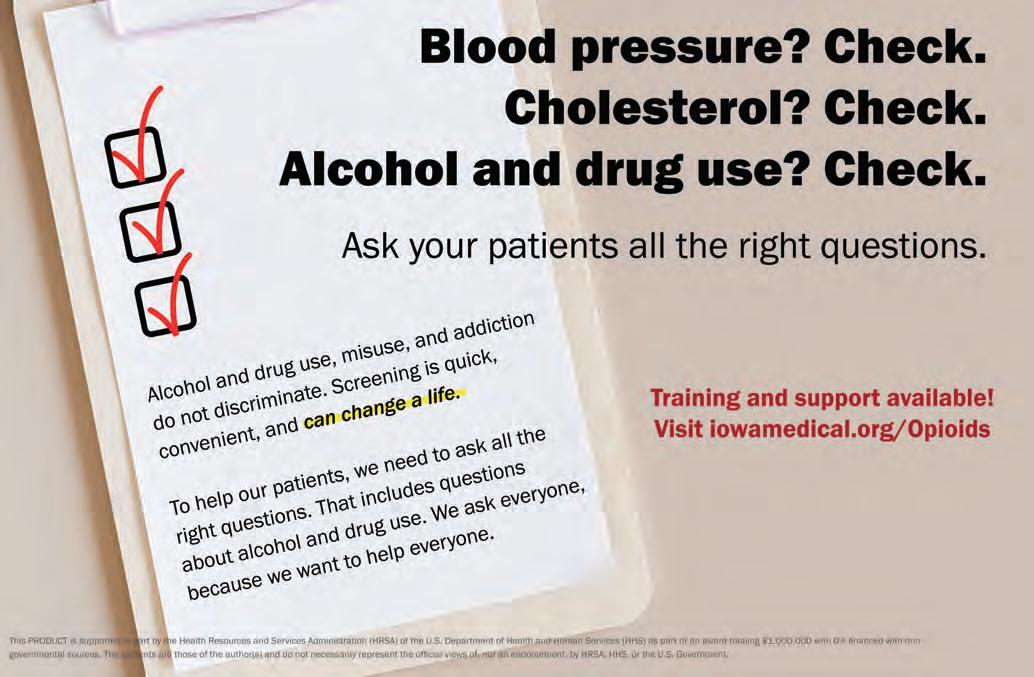
Dr. Kitchell has served on the IMS board, as Board President, and as AMA Delegate and AMA Delegate Chair. He currently serves on the IMS Foundation board. For his years of service to IMS, we recognize his outstanding commitment to our organization. This award honors his focus and determination at the federal level to fix the Medicare Geographic payment disparity, and his countless hours of support for the philanthropic endeavors of IMS and the broader healthcare community.
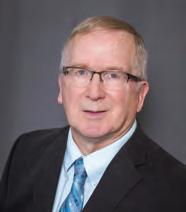
15 Iowa Medicine Q2 2023 | IMS AWARDS 15 Medicine |
COMMITTEE ROUNDUP
Have you ever wanted to serve on an IMS committee but not sure where to start or what they do? Here are comments from committee members on their mission and motivation for being involved.
Medical Services
Carol Frier, DO
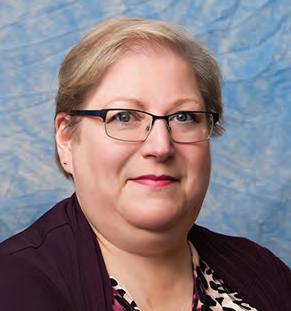
“This committee offers an opportunity to listen to and share the concerns of Iowa’s physicians, and the barriers they face in their practices with state and national leadership. Our members want to provide the most effective and best quality care to our patients. The goal of the committee is to assist our membership in continued efforts to make that happen.”
Legislation
Kevin J. Cunningham, MD, FACP
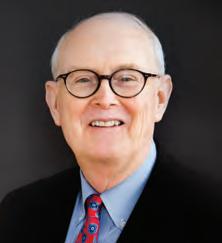
“It remains a great privilege to serve on the IMS Legislative Committee.
It’s refreshing to see younger members engage in the legislative process which is often painstaking and disappointing. These members provide a good foundation for the future of the Iowa Medical Society and have the benefit of advice from seasoned members.
The future remains challenging but our underlying mission of serving our patients will help us persevere in our efforts.”
*Note: not all committees are listed due to space constraints, please see the IMS website for a full listing.
16 | Iowa Medicine Q2 2023
COMMITTEE ROUNDUP
Law and Ethics
Nick Kluesner, MD
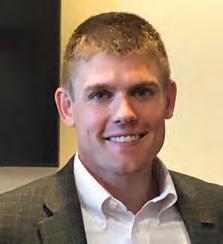
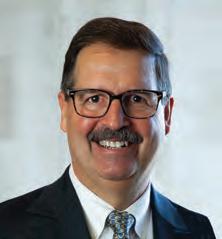
“Since I joined the IMS Committee on Law and Ethics in medical school, I have enjoyed the chance to wrestle with some of the most difficult questions facing Iowa physicians and patients. The diverse representation of physician specialties from across the state makes for challenging and rich discussions I look forward to each year. In the past 12 years, our debates have included topics such as physician aid-in-dying, IPOST utilization, undocumented dialysis patients, and firearms.”
Physician Workforce
Humphrey
Wong, MD
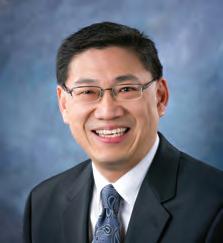
“I enjoy being part of this group of physicians who are highly engaged and motivated in improving the physician workforce in Iowa. We discuss ways to improve physician recruitment, education, and retention. We try to come up with ways to shore up existing programs such as loan forgiveness and brainstorm novel ideas of incentives and strategies to retain the physicians that do come to our state. Hopefully, we will continue to make a positive impact on this difficult but important topic.”
CME Accreditation
Michael
Romano, MD, MHA
“I give most of the credit for my love of CME to my mentor in the accreditation world, Dr. Doug Dorner. He opened my eyes to the endless possibilities CME offers for making better physicians. By the nature of our business, we’re life-long learners and we seek out information when we see opportunities to improve our care of patients. CME provides us with a vehicle that maximizes the effectiveness of those searches. Accredited CME is as close as we can get to guaranteeing we will learn from the information we’ve ingested.”
17 Iowa Medicine Q2 2023 | COMMITTEE ROUNDUP 17 Medicine |
Diversity, Equity, and Inclusion Lillian Erdahl, MD

“When I joined the IMS Board of Directors in April 2020, I had a longstanding interest in driving workforce equity for physicians. In 2020, we began a year of unprecedented challenges as a society. We also found renewed attention to older issues related to racism, racial injustice, and disparities in healthcare. While the pandemic worsened inequities in the workplace, the inequity in access to healthcare and outcomes with treatment are much more devastating to me.
As a medical society, each of our members has unique talents and career interests. Our common goal is providing excellent care for all Iowans. In establishing a Diversity Equity and Inclusion Task Force in the second half of 2020, IMS sought to evaluate which issues were important to our members and our stakeholders. Throughout the process, we looked to learn and listen as well as to center our efforts on equity for physicians and patients.”
Sports Medicine Co-Chairs; Sarah Bancroft, DO and Bryan Warme, MD
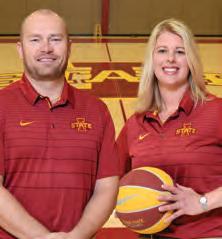
“We really appreciate the opportunity to engage the sports medicine leaders throughout the state to help promote and encourage safety, prevention, and treatment of sports medicine issues. We work to help establish consensus policies and stay engaged with athletic trainers, physical therapists, and providers throughout the state in addition to dialoguing with legislative leaders. This gives us a chance to give back to the sports medicine field and pay it forward to the next generation of leaders.”
Note to readers: If you have an interest in serving on an IMS Committee, please contact Heather Lee, director of Membership, Sponsorships and Operations at hlee@iowamedical.org or by calling 515-421-4776.
*Note: not all committees are listed due to space constraints, please see the IMS website for a full listing.
18 | Iowa Medicine Q2 2023
COMMITTEE ROUNDUP
Support Iowa’s Future
Physicians, Support the World!

The Iowa Medical Society Foundation uses donations from physicians and friends of medicine to inspire, facilitate, and expand the educational and philanthropic endeavors of the Iowa Medical Society.

To learn more about how your contributions help to support over 6,000 medical students, residents, and physicians in Iowa please visit iowamedical.org/IMSF
THANKS TO IOWA MEDICAL SOCIETY PREFERRED PRINTING PARTNER:
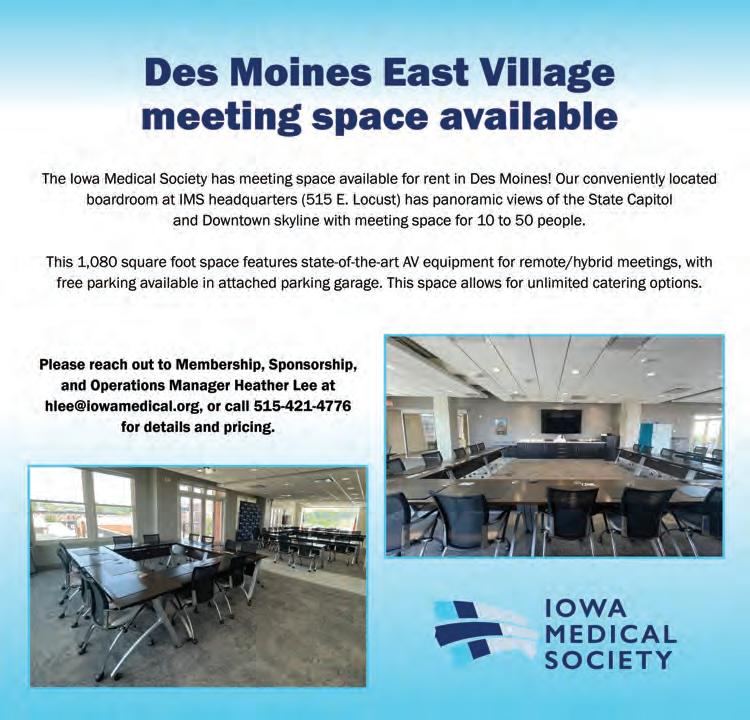
19 Iowa Medicine Q2 2023 |
SECURITY: The Case for Repositioning Life Insurance as a Long – Term Care / Life Policy
KEITH DERAS
Sr. Vice President Benefits at IowaMed Insurance

Life insurance is a valuable financial tool that can provide you with protection and peace of mind. However, as time goes on, you may start experiencing
that address your changing priorities while helping you plan for potential long-term care expenses. In this article, we will discuss how exchanging your cash value life

premiums. This fatigue can prevent you from fully recognizing the true value of life insurance and its potential benefits.
life policy. They are concerned about
FINANCIAL HEALTH
20 | Iowa Medicine Q2 2023
ENHANCING FINANCIAL
This approach eliminates the need for ongoing premium payments, providing relief and easing financial strain. Additionally, you may choose to purchase a standalone long-term care policy using the cashflow that was previously allocated for life insurance premiums. This ensures comprehensive coverage for both you and your partner.
The Solution:
• Purchase a linked-benefit solution on James, using a 1035 exchange on the cash value of the whole life policy (one problem solved –no taxes)
• Structure James’ new linkedbenefit policy with a one-anddone, single-premium design (another problem solved – no more premium fatigue)
• Purchase a standalone LTC policy on Sheryl, using cashflow previously earmarked for life premium (now both have longterm care coverage)
• Keep their term insurance, as it was structured to last through age 70 (provides added peace of mind should either pass away prematurely)

Remember, premium fatigue doesn’t have to lead to frustration. You have the opportunity to explore options that optimize your assets and address your long-term care worries. By considering an exchange of your
cash value life insurance policy for a linked-benefit solution, you can repurpose your existing asset to obtain both life insurance and longterm care coverage. Take the time to understand your options and seek advice from a financial professional who can guide you through this process, ensuring that your evolving priorities are met and providing you with confidence and security for the future.
IOWAMED Insurance, a partnership between IMS and FNIC, provides services statewide to IMS physicians, their families, and employees. FNIC, formerly The Harry A. Koch Co., has been insuring the healthcare industry for over 50 years.
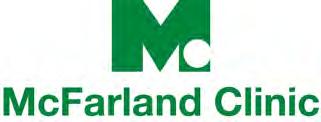

We currently work with 40 acute care and critical access hospitals, as well as 2,500 physicians in Iowa and Nebraska. They range in size from solo practitioners to fully integrated health care systems. The dedicated team of insurance professionals is ready to develop programs that fit your needs from commercial insurance and employee benefits to personal insurance.
Iowa exemplifies the meaning of Midwest living. Trails, parks and recreation abound in this idyllic, picturesque state. Close to several metropolitan cities, you can benefit from small-town charm with big-city amenities nearby. Offering top-tier compensation and benefits. Iowa ranks in the Top 10 Best States to Practice Medicine by WalletHub.

21 Iowa Medicine Q2 2023 |
FINANCIAL HEALTH Join our collegial teams within Iowa’s largest physician-owned, multi-specialty clinic. Seeking physicians for the following specialties:
physicianjobs@mountainmedgroup.com EEO/AA Employer/Protected Vet/Disabled Physician Opportunities Physician-Led Medicine in Iowa • Cardiology- NI/INT • Dermatology/Mohs • Family Medicine • Gastroenterology • General Surgery • Hospitalist • Internal Medicine • Nephrology • Neurology • OB/GYN • Occ Med • Otolaryngology • Pediatrics • Physiatry • Psychiatry • Pulmonology/CC • Radiation Oncology • Urology Extraordinary Care, Every Day
Contact: Doug Kenner
AMA REPORT Updates from the 2023 Annual Meeting
VICTORIA SHARP, MD, MBA
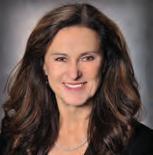
The American Medical Association (AMA) House of Delegates (HOD) addressed several timely issues during its annual meeting which was recently held in Chicago June 9-13. The in-person meeting brought together nearly 700 physicians, residents, and medical students to help fulfill the AMA’s core mission of promoting medicine and improving public health.
The Iowa delegation consisted of Anne Langguth, MD, Rob Lee, MD, Victoria Sharp, MD, Doug Peters, MD, Doug Martin, MD, Brian Privett, MD, and our IMS staff, Steve Churchill, EVP & CEO, and Phil Jeneary, Director, Government Relations. IMS President Jessica Zuzga-Reed, DO, also joined our delegation as an alternate and represented Iowa on stage during the installation of the new AMA President. Other Iowa Medical Society member attendees, representing their specialty societies, included Past IMS President Mary Grace Elson, MD, Marta Van Beek, MD, Hillary Johnson-Jahangir, MD, Erin Shriver, MD, Megan Srinivas, MD, and Shane Hopkins, MD

Jessie Ehrenfeld, MD, MPH, a tenured professor of anesthesiology at the Medical College of Wisconsin was installed as the 178th AMA President. In addition to his numerous academic accomplishments, he has advocated on behalf of LGBQT+ individuals over the last two decades. Bruce
A. Scott, MD, an otolaryngologist
from Kentucky was voted Presidentelect and will be installed as AMA President in June 2024. There were preliminary meetings with our Iowa delegation and the North Central Medical Conference (Iowa, Minnesota, Nebraska, North and South Dakota) to review over 200 reports and resolutions for consideration. Resolutions and testimony are based on expertise, best evidence in medical and health policy literature, and state medical associations and national medical specialty societies perceptions and priorities. Our delegation participated in eight reference committees: AMA Constitution, Bylaws and Medical Ethics, Legislation, Medical Education, Science and Public Health, AMA Governance and Finance, Medical Service, Medical Practice and Science and Technology. Detailed reference committee testimony, thoughtful HOD debate and votes led to new and updated AMA policies and direction for the AMA Board of Directors and staff. A few of these are highlighted below and additional details can be found on the AMA HOD’s interim meeting website.
• Fixing Medicare physician pay is one of the AMA’s top priorities.
• O versight needed on payers’ use of AI in prior authorization and need to reduce number of things requiring it.
• Only physicians should lead emergency departments.
• Make sure only relevant mental health information is used in licensing and credentialing.
• Ensure patients in underserved areas and seniors with complex health conditions have access to telehealth and have the technological skills to be able to take advantage of it.
• Ethics policy advising physicians and health care organizations on their roles in advancing health equity for historically marginalized racial and ethnic groups.
• Policies supporting diversity in medical education, flexible time off and better clerkship grading policies for medical students adopted.
• Educate patients about misleading AI-generated medical advice.
• Support for ban on noncompete requirements.
• Social isolation and loneliness adversely affect mental well-being and quality of life. New policy was adopted to research how forming networks early in life helps reduce isolation and loneliness for adults, with special attention to marginalized populations and communities with limited access to resources. Efforts also needed to decrease rates of suicide, depression and other mental health problems in children.
22 | Iowa Medicine Q2 2023
AMA REPORT
Chair, Iowa Delegation, AMA HOD
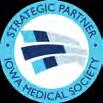

23 Iowa Medicine Q2 2023 | COPIC is the preferred, endorsed medical professional liability insurance provider for IMS members. callcopic.com | 800.421.1834 1 2 5 3 4
OPIOID USE DISORDER –
Turning the Page on Treatment
Four-hundred seventy-five individuals died of drug overdoses in Iowa in 2021, according to the most recent finalized data from the CDC. Provisional data for 2022 has decreased that number to 471, but that figure may be underreported at this time.
Drug overdose deaths in Iowa are largely due to opioids, especially synthetic opioids like fentanyl – which is 50 times stronger than heroin and 100 times stronger than morphine - and derivatives of fentanyl – which can be even stronger.
“I take care of a patient with an opioid related problem a few times a month at least,” said Nick Kluesner, MD, FACEP, Associate Medical Director, Emergency Department, UnityPoint Health – Des Moines. “Whether fentanyl is involved or not, the goals remain the same: resuscitate the overdose; support and encourage the transition to Opioid Use Disorder treatment.”
Signs of Overdose
According to the U.S. Department of Health & Human Services –Substance Abuse
and Mental Health Services Administration, SAMHSA, signs of opioid overdoses include:
• Blue, pale skin that is clammy to the touch.
• Limp body.
• Vomiting or gurgling in the throat.
• Unconsciousness or inability to speak.
• Slowed or lack of heartbeat or breath.
At UnityPoint Health – Iowa Methodist Medical Center, Dr. Kluesner describes the subtleties in treating opioid overdoses based on the severity. If the patient is in a life-threatening condition, like full respiratory arrest or having no pulse, then a high dosage of naloxone is administered. Naloxone reverses an overdose by blocking the effects of an opioid. It is administered as an injectable
(intravenous or intramuscular) or a nasal spray. After naloxone is administered, Dr. Kluesner braces for acute awakening, which is often accompanied by agitation and withdrawal. If the patient is not experiencing life-threatening conditions, such as mild to moderate respiratory depression, then a small, carefully titrated dose of IV naloxone is administered. This seeks to ease the patient out of an overdose state without triggering acute withdrawal. Finally, if the patient is experiencing a mild overdose, meaning they are breathing safely, the patient is monitored for possible decline without administering naloxone.
“We are often attempting to encourage patients to stay for
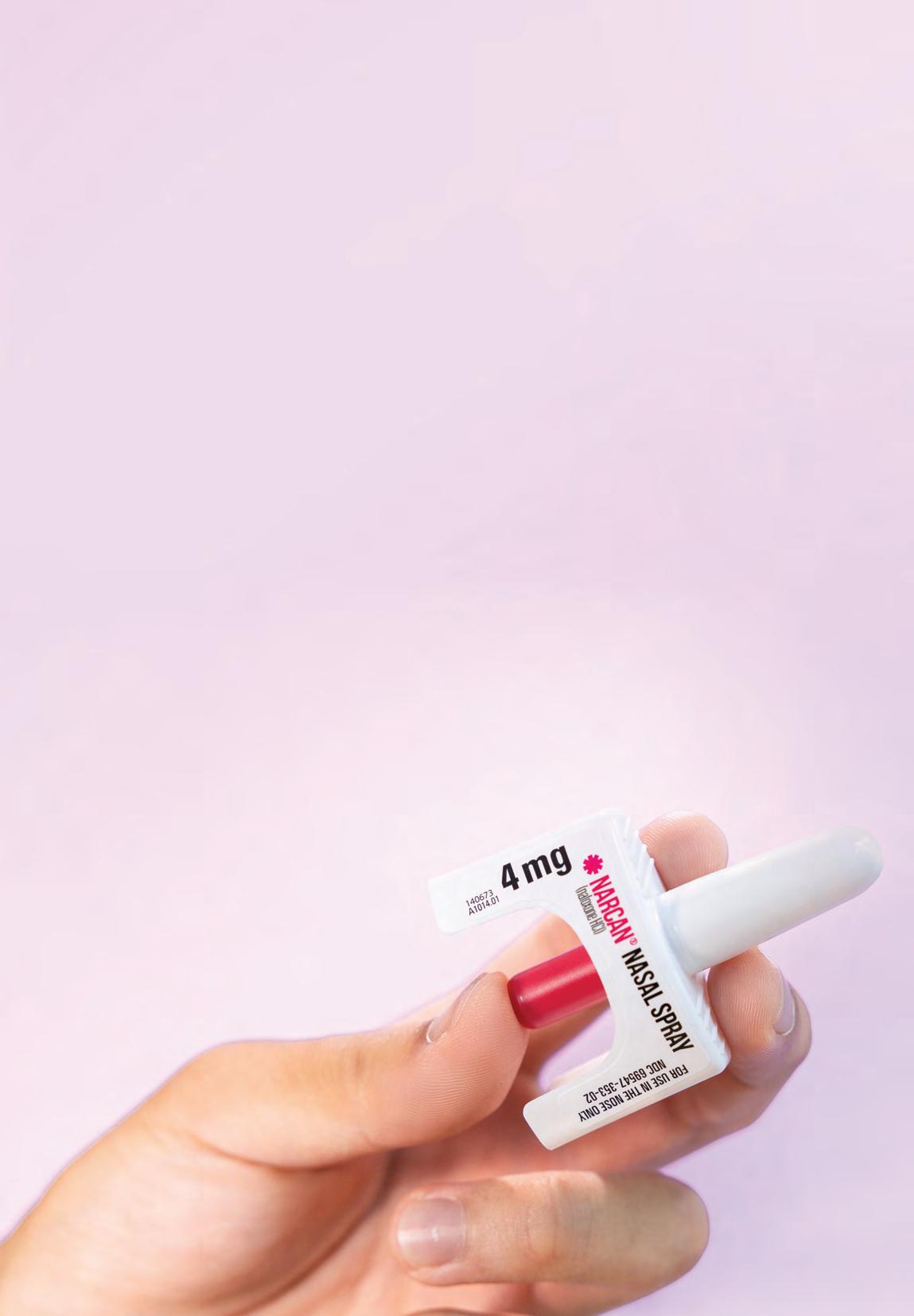
SAMANTHA MORI Summer Communications Intern, IMS
IMS IN DEPTH
24 | Iowa Medicine Q2 2023
monitoring to ensure no rebound sedations occur after the naloxone wears off,” said Dr. Kluesner.
“Many patients who present to the emergency department in an opioid overdoes leave shortly after naloxone reversal against medical advice… We often try to facilitate a takehome naloxone kit provided by [the Department of Public Health] and information about area resources for OUD treatment.”
Treatment is critical
Access to treatment for OUD – a problematic pattern of opioid misuse that results in clinically significant impairment or distress – is critical because persons with OUD are less likely to experience overdose if they are getting treatment.
“The real issue is the OUD itself and the need for more comprehensive and easily-accessible management of this addiction through proven tools such as medication-assisted therapy,” said Dr. Kluesner.
Medication-assisted therapy, or medication for addiction treatment, is the most common type of treatment for OUD in conjunction with behavioral therapy. There are two types of medication for addiction treatment: opioid agonist therapy and opioid antagonist therapy.
Opioid agonist therapy uses either buprenorphine or methadone.
Buprenorphine is an opioid partial agonist; it activates the body’s opioid receptors and produces opioid effects at low to moderate doses.
Buprenorphine helps to diminish the effects of physical dependency on opioids, decreases the likelihood of overdoses, and lowers the potential for misuse. Methadone is a long-acting full opioid agonist; similar to buprenorphine, it activates the body’s opioid receptors and produces opioid effects. Both buprenorphine and methadone help reduce opioid cravings and withdrawal symptoms.
“When somebody has an opioid use disorder, their body has become
accustomed to having an opioid in their system. They get withdrawal symptoms without that opioid,” said Alison Lynch, MD, MS, Director of the Opioid Addiction Clinic – Department of Psychiatry, Director of the University of Iowa Addiction and Recovery Collaborative, and clinical professor at UIHC. “Buprenorphine and methadone both activate the opioid receptor; they relieve that sense of withdrawal. [Patients] don’t have withdrawal symptoms, and they don’t have cravings.”
Opioid antagonist therapy uses naltrexone. Naltrexone binds tightly with opioid receptors in the body without activating those receptors and causing the euphoric and sedative effects of an opioid. It also helps reduce and suppress opioid cravings, according to SAMHSA.
“It’s an opioid blocker,” said Dr. Lynch. “If somebody has naltrexone in their system, and then they take another opioid, like they smoke some heroin or they take oxycodone, those opioids that get introduced after the naltrexone can’t get to the opioid receptor and activate it. They can’t cause opioid effects.”
Dr. Lynch mainly prescribes buprenorphine for her patients experiencing OUD.
“It is a life-saving medication that works really well for people,” said Dr. Lynch. “It is such a privilege to
get to help somebody connect to something that can be available to them and help them when things are not going well for them, and they’re really suffering.”
More Access for More Doctors
Recently, the Consolidated Appropriations Act, 2023, or the Omnibus bill, removed the requirement that medical practitioners submit a Notice of Intent, or X-Waiver, to prescribe medications like buprenorphine. Instead, practitioners with the appropriate DEA registration may prescribe buprenorphine to patients with OUD with no limits or patient caps regarding the number of patients a practitioner treats.

“I think that will help with some stigma,” said Dr. Lynch. “It kind of opens the door for more doctors to get some experience with this medication. It (buprenorphine) is amazing … most medications don’t make patients feel a lot better within a couple of hours.”
Even with the removal of the X-Waiver and potentially more access to medication for OUD, treatment does not rely exclusively on medication. Factors such as a patient’s living situation, support system, financial stability, and social interactions can all impact recovery.
“Medication can help people get stable, but then looking at what are the other things in their life that are helping them stay in recovery,” said Dr. Lynch. “Some people should take [medication] for a year or two … and other people may need to be on it life-long. That’s okay.”
As with any recovery situation, access to help is crucial.
Resources regarding opioid abuse and physician trainings can be found on the IMS website at:
www.iowamedical.org/Opioids
“It is such a privilege to get to help somebody connect to something that can be available to them and help them when things are not going well for them, and they’re really suffering.”
25 Iowa Medicine Q2 2023 | IMS IN DEPTH
– Alison Lynch, MD, MS
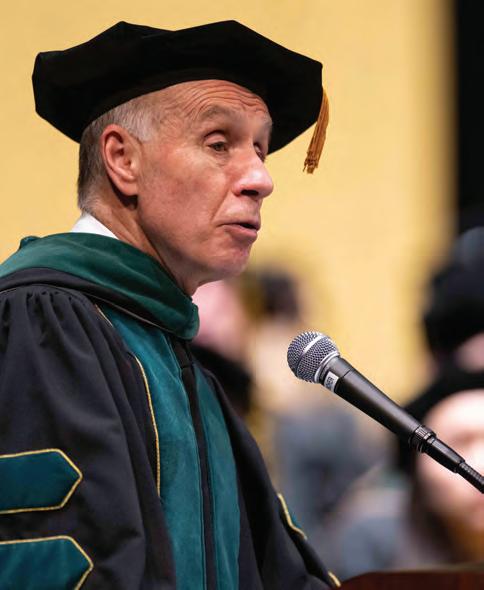
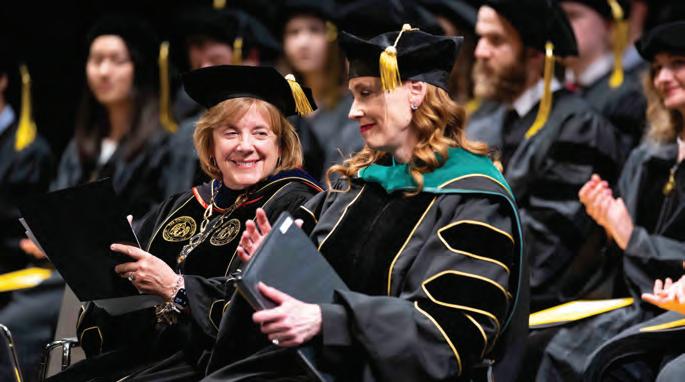

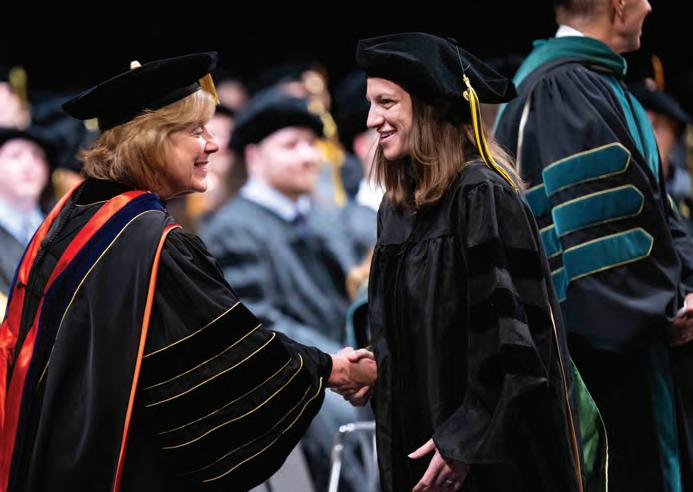
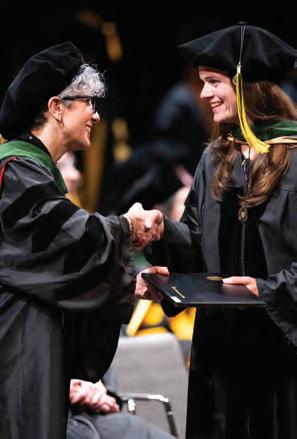

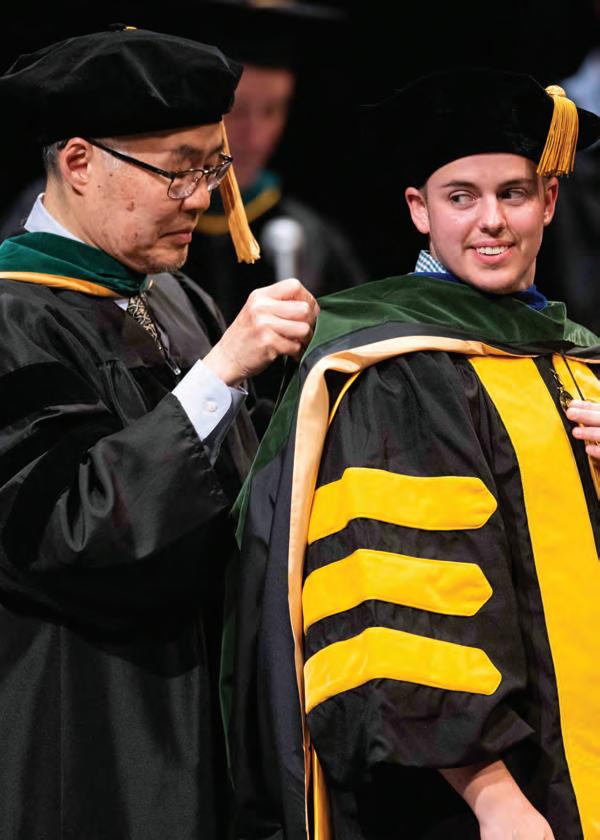
SPECIAL THANKS TO UI PHOTOGRAPHER: TIM SCHOON COMMENCEMENT 26 | Iowa Medicine Q2 2023
UNIVERSITY OF IOWA CARVER COLLEGE OF MEDICINE
DES MOINES UNIVERSITY COLLEGE OF OSTEOPATHIC MEDICINE

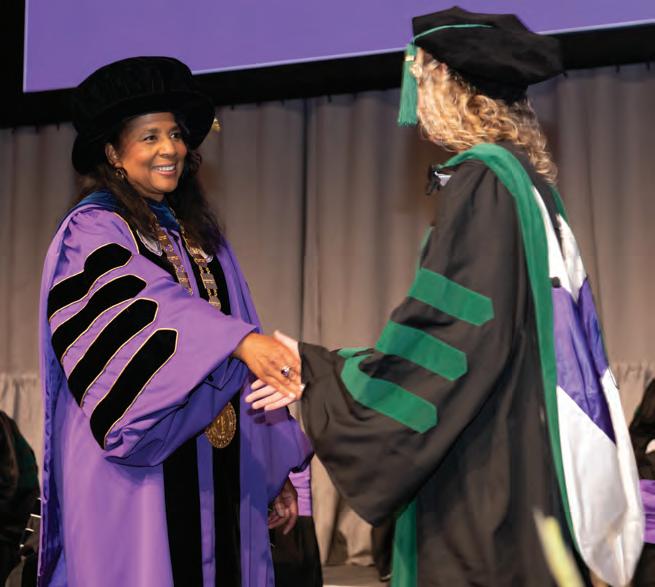

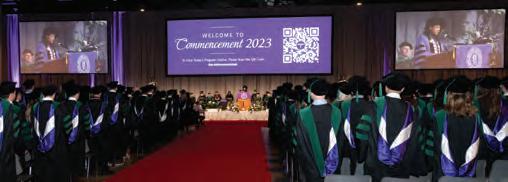
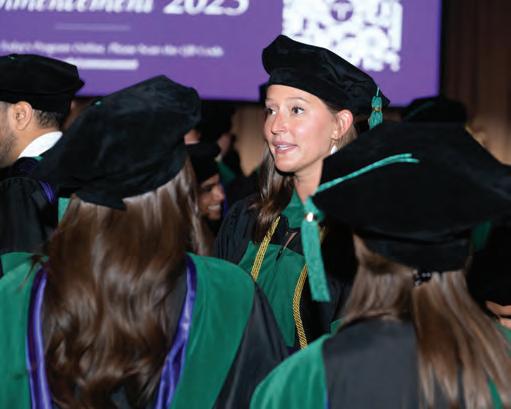
SPECIAL THANKS TO DMU PHOTOGRAPHER: RICHARD SANDERS
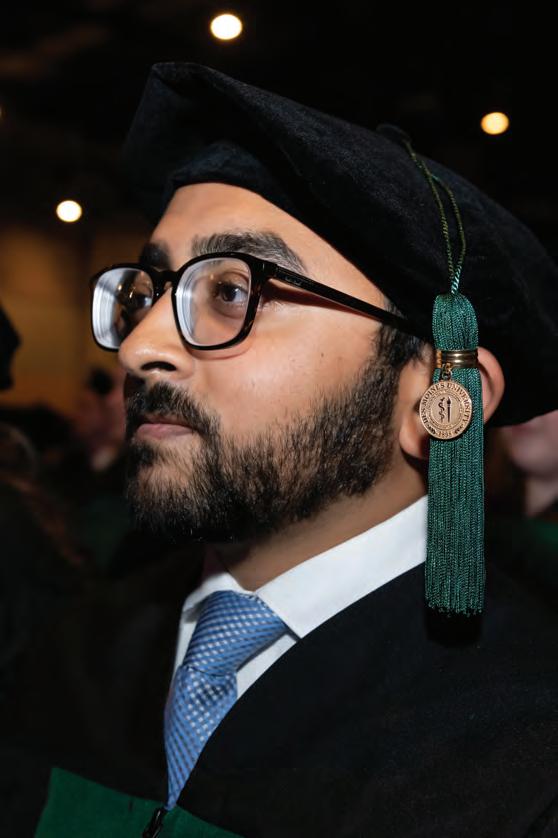
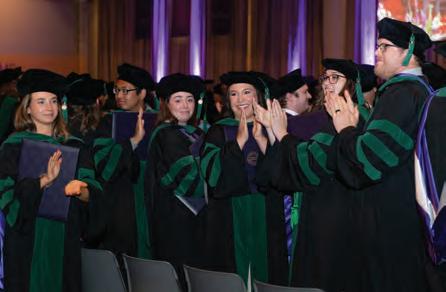
COMMENCEMENT 27 Iowa Medicine Q2 2023 |
GETTING TO KNOW HUMPHREY WONG, MD
SARA OPIE IMS Director of Communications & Marketing
Sometimes the journey to becoming a physician begins with impactful experiences and influential people. That is certainly the case for Dr. Humphrey Wong, a Wisconsin native, who did his residency in the Twin Cities, then moved to the west coast for his early medical years before choosing Iowa to practice as a critical care pulmonologist.
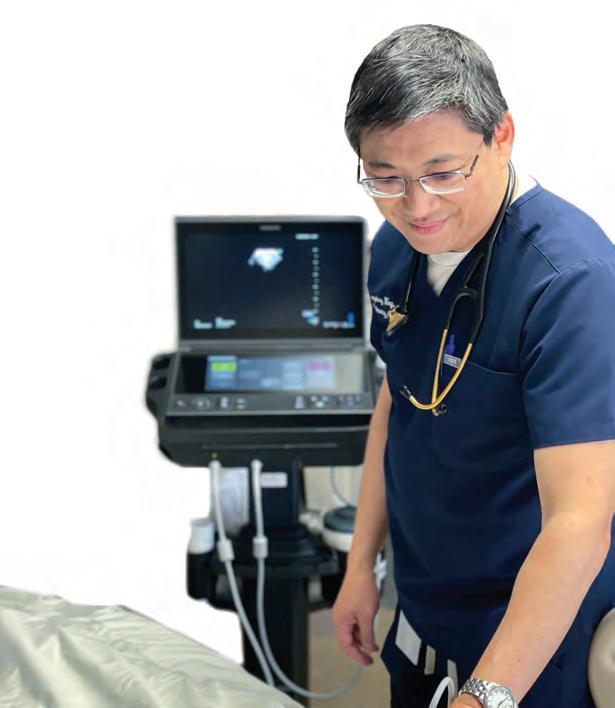
“It’s just a wonderful practice environment for us,” said Dr. Wong whose wife is a gastroenterologist.
Pulmonologists treat ailments of the lungs and respiratory system, such as asthma, emphysema, pneumonia, complicated chest infections and interstitial lung disease.
“Iowans are good people to take care of. They are guided by Midwestern values and appreciative of they care you give them.”
Dr. Wong’s interest in medicine was sparked by a high school biology program that gave him exposure to medical biology. That combined with his joy of working with people led him on the path to medical school at the University of Wisconsin School of Medicine and Public Health. While in med school, two faculty members were highly influential to his chosen path.
Robert Schilling, MD, the namesake of the Schilling test (which determines if a patient has pernicious anemia, a disease caused by malabsorption of B12 due to lack of intrinsic factor) and the former head of hematology and oncology at UW–Madison, did class rotations with students like Dr. Wong (as class mentor) who got to know him personally.
“Dr. Schilling really encouraged us to find an area of interest where you could become the expert and demonstrate that expertise – that was really valuable to me.”
Adding to that guidance was infectious disease physician at UW–Madison, Dennis Maki, MD, who was a big believer in patient advocacy. “He told us to go above and beyond for a patient, be persistent in your endeavors on their behalf.” It’s advice Dr. Wong took to heart.
As a member of the Iowa Medical Society, serving on the IMS Committee on Physician Workforce, and board member on the IMS Foundation, Dr. Wong is a big believer in organized medicine, recruiting a young physician workforce, and the power of working together toward advocacy.
“The next generation will be a very different generation of physician –socially conscious, strong advocates
Dr. Humphrey Wong is a pulmonologist and intensivist in Davenport, Iowa and is with Genesis Health Group and Genesis Medical Center-Davenport. He received his medical degree from University of Wisconsin School of Medicine and Public Health and has been in practice since 1996.
for themselves, even stronger patient advocates. I think they’ll be better at work/life balance.”
That zest for patient advocacy combined with his interest in physician recruitment is a powerful combination for Dr. Wong. “I am really driven to help recruit and retain medical students to Iowa. It is a great place to practice, we just need to find them early and get them here.”
With two sons in California, and one in medical school, a recruiting call from their dad may just be the shot in the arm needed to bring new talent back to Iowa.
DR. WONG’S ADVICE TO NEW DOCTORS:
1. Be a patient advocate
2. Communicate with the patient at the patient’s level
3. Be honest –patients appreciate and deserve the truth
28 | Iowa Medicine Q2 2023
PROFILES IN MEDICINE

29 Iowa Medicine Q2 2023 |
CARE | ADVOCACY | RESEARCH | EDUCATION
1.855.850.KIDS (5437) is your 24-hour link to pediatric specialists for physician-to-physician consults, referrals, admissions and transport.
One number is all you need to connect with the very best pediatric surgical specialists.
MAKING THE TRANSITION
BROOKS JACKSON, MD, MBA

Dr. Jackson is University of Iowa Vice President for Medical Affairs and the Tyrone D. Artz Dean of the Roy J. and Lucille A. Carver College of Medicine
It’s been said that we live life by looking forward, but we understand life by looking backward.
This column is a little of both. Early in 2022, I’d announced that I would step down from my role as University of Iowa vice president for medical affairs and dean of the Carver College of Medicine once my successor was in place.
In May, university leaders announced that Denise Jamieson, MD, MPH, would begin as the new vice president and dean on Aug. 1. Dr. Jamieson comes to Iowa from Emory University School of Medicine, where she is chair of the obstetrics and gynecology department. Before joining Emory, she spent 20 years in various leadership roles with the Centers for Disease Control and Prevention. Dr. Jamieson’s background and experience is impressive, and I’m certain she will be an outstanding leader and collaborator for our health system and the broader university.
As for me, I will transition to being a faculty member in our college’s pathology department and continue my research, teaching, and clinical activities. I’ll provide a bit more detail on this, but first I’d like to share just a few highlights of what we’ve accomplished since I joined UI Health Care in fall 2017:
Extramural funding
Research is a hallmark of our university, and our investigators have done a great job applying for and receiving grants from governmental and private agencies and organizations. In FY22, our research teams brought in over $276 million for basic science studies, population-based research, and clinical trials that offer promising new treatments for patients. Since FY17, our external funding has increased by more than 26%.
Faculty scholarship
Approximately 70% of our faculty published research papers or other scholarly works during our past fiscal year, with over half serving as first or senior author—a good sign of productivity and impact in the medical literature.
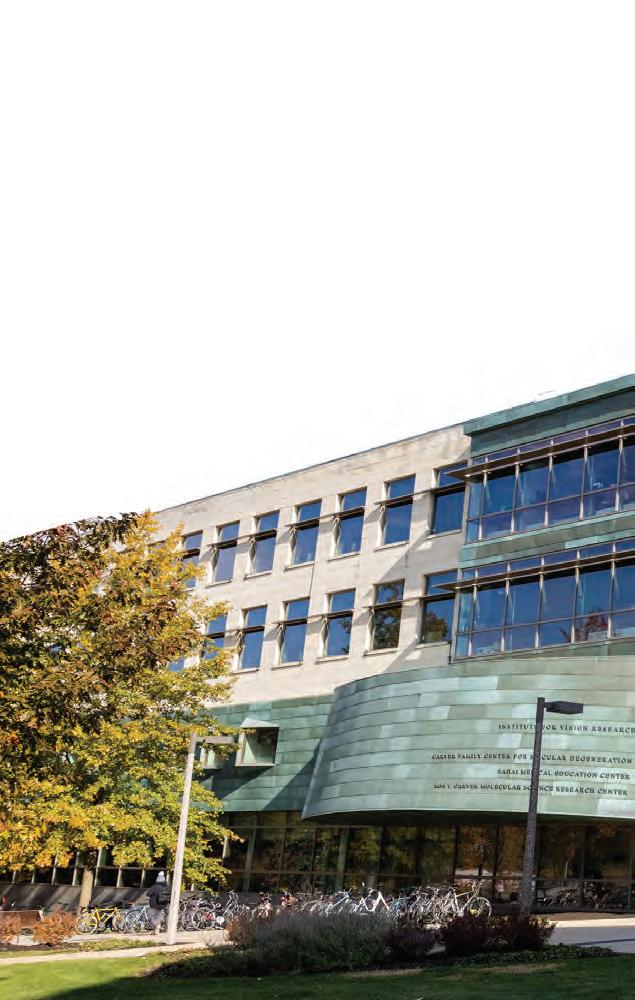
Training opportunities
Preparing the state’s physician workforce is an important part of that where doctors complete their residency training can influence where they decide to practice. To this end, we have expanded the number of residency and fellowship training slots over the past several years— in primary care, general surgery, hematologyoncology, psychiatry,
and orthopedics, to name just a few specialties. And for FY24, we plan to add new fellowships in clinical informatics and laboratory genetics and genomics, and we’ll expand our training programs in urology and pediatric radiology. Also, we recently assumed operations of the family medicine residency
30 | Iowa Medicine Q2 2023 UNIVERSITY OF IOWA DEAN
expected to begin in 2025, which will add much-needed capacity. Before this work starts, numerous enabling projects will begin, as will the construction of a new health sciences academic building. These projects, in addition to our new hospital campus being built in North Liberty, will allow us to meet the specialized health care needs of patients well into the future.
Donor support for our mission
Philanthropy is important to what we do—for research, for facilities, for tuition scholarships and endowed positions that attract the best students and faculty, and for programs and services that benefit patients. Working with the UI Center for Advancement, we’ve had great

our physician assistant and physical therapy programs; addressing health disparities; implementing employee well-being programs; and finding ways to increase patients’ access to care. And I haven’t even mentioned COVID—what we learned from the pandemic in terms of crisis preparedness and response, how we managed resources and
Over the past 30 years I’ve been involved in research aimed at decreasing maternal-infant HIV transmission and treating pediatric HIV infection and its complications—in the U.S. and also in Africa and China. Recently, I launched a program with colleagues in Uganda that
operations, how we communicated with employees and the public, and how we vaccinated and cared for patients.
is designed to engage medical students in maternal health care and research. Uganda experiences high rates of maternal mortality,
31 Iowa Medicine Q2 2023 | UNIVERSITY OF IOWA DEAN
Let’s continue to look forward (and backward) as we work together to improve the health of patients in Iowa and beyond.
FADI YACOUB, MD, FASN

Nephrologist in Cedar Rapids, medical director of two dialysis units, also serving as medical director of local medication management committee, along with other positions including chair of Medical Review Board of ESRD Network 12.
Background
Born and raised in Latakia, Syria located on the Mediterranean Sea.
What drew you to medicine?
Since the age of five, I have been drawn to the field of medicine, with a desire to become an oncologist and cure cancer. It is difficult to pinpoint the exact reason why. Perhaps the profound impact of witnessing the suffering of one certain old lady in my grandparents home village, Dwair Taha, Syria. Along the way I discovered nephrology after precepting with my attending physician Dr. Timothy Pflederrer.
Hobbies
I enjoy spending quality time with my family. My wife, Molly, and I have been blessed with four children, John, Maria, Eva, and George. I hiked up Kilimanjaro Mountain several years ago (pictured), what an experience!
I consider myself an avid reader and a fitness fanatic. I enjoy watching and playing soccer and football. My son and I are huge Kansas City Chiefs fans!
My greatest accomplishment
Welcoming my children into the world, and nurturing them, has been an immeasurable source
of pride and fulfillment for me. And ranking in the top five students in Syria in the national junior high exam had a profound impact on my scholarly and professional career.
Someone who inspires you and why
Three remarkable individuals left an incredible mark on my life:
• T he late Mrs. Dist, my third-grade teacher, she had a great nurturing soul, and helped mold me into who I am as a person.
• Dr. Dane Nichols, in Peoria, IL stands out as one of the most intelligent and competent physicians I have had the privilege of encountering in my entire career. Dr. Nichols deeply impacted my professional growth.
• Dr. Michael Flanagan, nephrologist in Iowa City, his unique personality and extraordinary professional competence have left a great mark on my journey to become a nephrologist.
My hopes and dreams for healthcare in Iowa
These revolve around equitable and easy access to quality care for all individuals, irrespective of their insurance or financial status. By providing patientcentered care, addressing disparities, fostering collaboration, and embracing innovation we can build a healthcare system that truly serves the needs of every Iowa resident.
Why I’m an Iowa Medical Society member
IMS has been a great partner, assisting us in navigating legal, compliance, and political issues concerning being a physician. They have played a significant role in addressing Tort Reform. The society continues to provide us with significant resources, guidance, and advocacy efforts, ultimately helping create a supportive environment for physicians in Iowa.
I AM AN IMS MEMBER
32 | Iowa Medicine Q2 2023
THE TREATMENTS OF TOMORROW ARE HERE TODAY. IN IOWA
I’m here for one purpose and that’s to give my patients the best medicine has to offer.”
Our teams are made of experts with different backgrounds, specialties, and passions, because we know more collaboration leads to more options. Combined with the abilities that come with academic medicine, we don’t just deliver the latest life-saving treatments, we discover them. All so we can change medicine and lives right here in Iowa.

 MD, PhD
MD, PhD
UIHC.org
Learn more at
NEUROLOGY
Nandakumar Narayanan,
PEACE OF MIND COVERAGE BEYOND
As a premier medical liability insurance carrier, we are committed to being there when you need us. Our physicians and other staff serve as extended members of your team to help answer questions or navigate difficult situations. And when it’s urgent, you have 24/7 access to a physician via our Risk Management hotline. Plus, our legal and HR experts help you tackle other issues as they arise. That’s Value Beyond Coverage.
COPIC is proud to be the endorsed carrier of the Iowa Medical Society. IMS members may be eligible for a 10% premium discount.

CALLCOPIC.COM | 800.421.1834

































































































